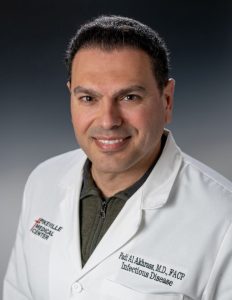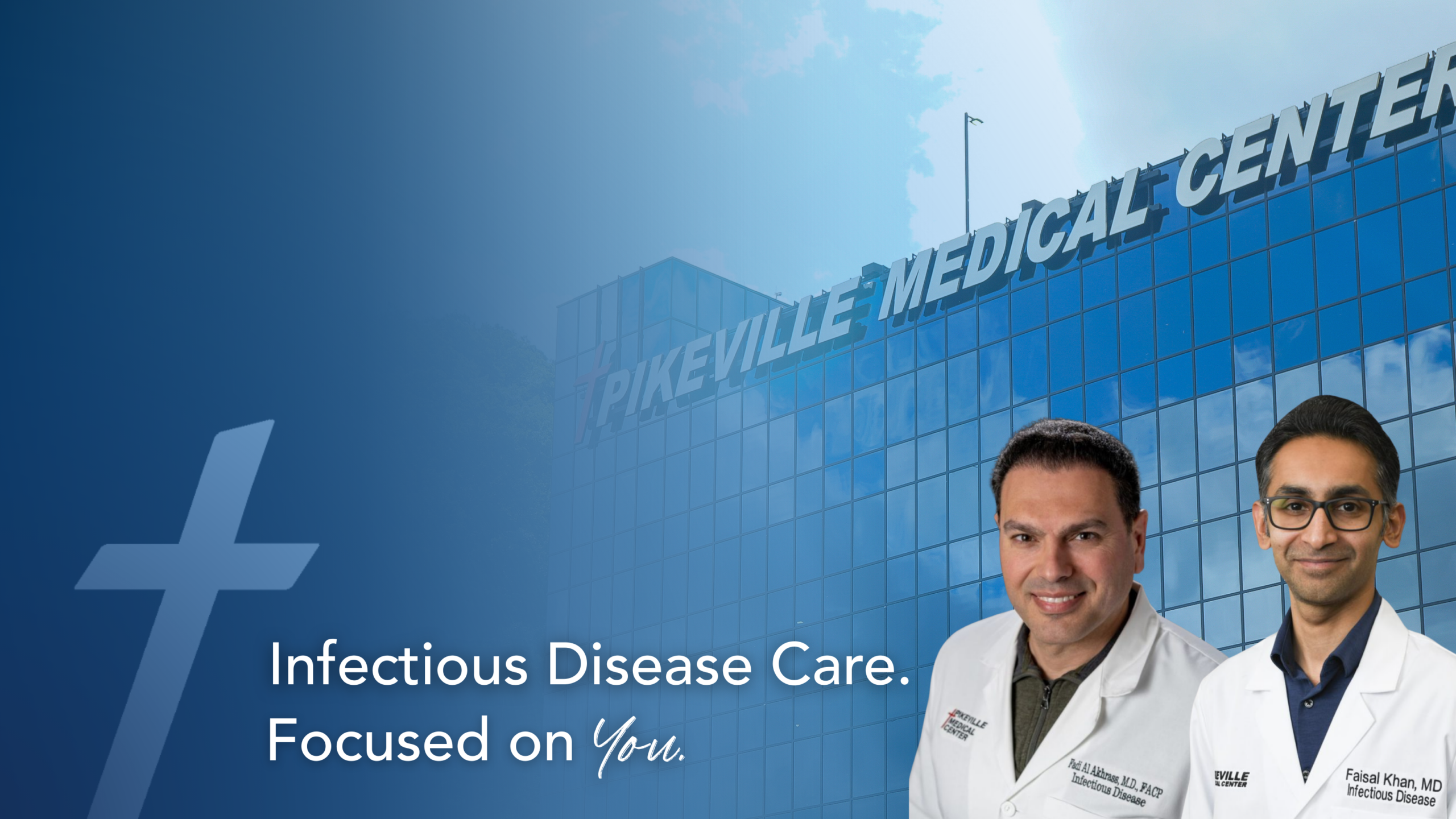

Infectious diseases are caused by bacteria, viruses, fungi, parasites or other types of organisms. These type of diseases can be passed to another person and are usually transmitted by insect or animal bites, ingesting contaminated food/water or being exposed to environmental organisms. Infectious diseases are also referred to as transmissible or communicable diseases.
PMC Clinic Building, 8th Floor
911 Bypass Road, Building A
Pikeville, KY 41501
606-430-2208
Infectious Disease Physicians Specialize in:
- Congenital Immune Deficiencies
- Fungal Infections
- Immunizations
- Hospital Acquired Infections
- Hepatitis B and C
- HIV/AIDS
- Infections in Transplant Recipients and Other Compromised Hosts
- Bone and Joint Infections
- Skin and Soft Tissue Infections
- Cardiovascular Infections
- Clostridium Difficile Associated Diarrhea
- Tuberculosis
- Sepsis (See Sepsis Education Tab)
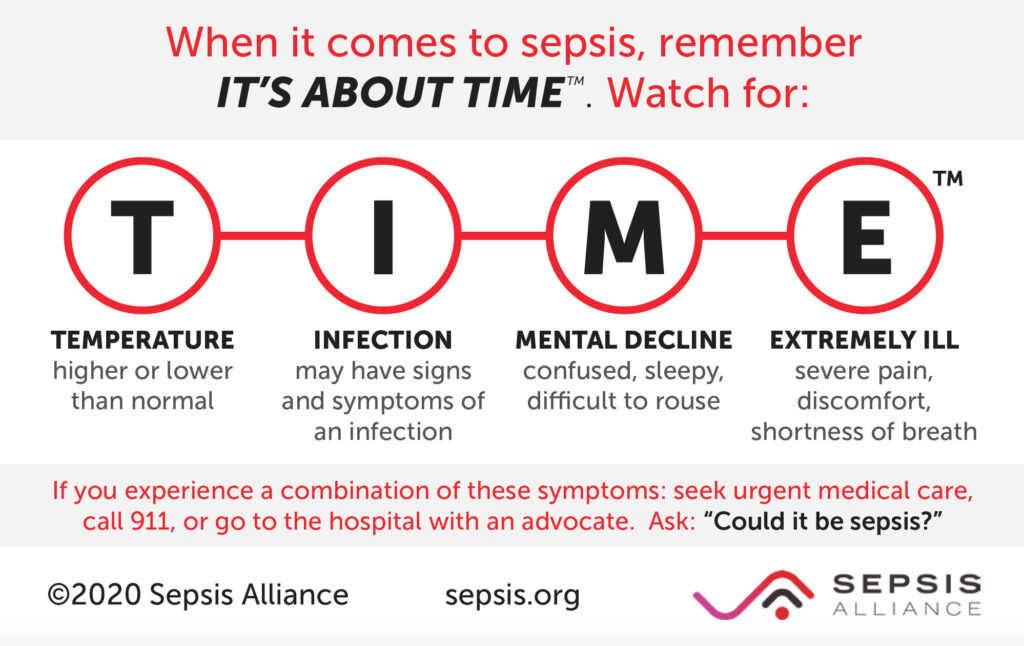
Sepsis Education
Here is how you can help STOP SEPSIS:
- Practice good hygiene, including hand washing frequently.
- Keep cuts and other wounds clean and covered until healed.
- Stay current on recommended vaccines.
- Seek medical care for all chronic conditions.
- Get immediate medical attention if you think you may have an infection.
Sepsis is the body’s life-threatening response to infection. It can burst blood vessels and destroy tissue. As it worsens, it affects the brain, lungs, heart and kidneys.
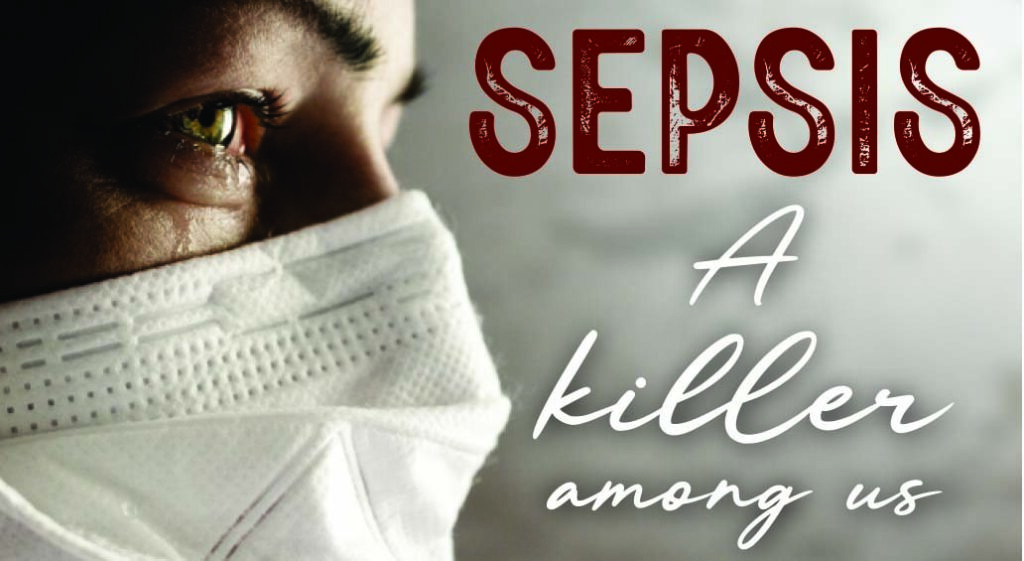
WHO IS MORE AT RISK
- Infants
- Elderly
- Those who are chronically ill
- Those with weakened or
impaired immune system
Sepsis can advance quickly, causing death in as little as 12 HOURS.
SIGN & SYMPTOMS
- Fast heart rate
- Low blood Pressure
- Fever or hypothermia
- Shaking or chills
- Warm or clammy/sweaty skin
- Pale or discolored skin
- Shortness of breath
- Sepsis rash
- Extreme pain or discomfort
- Confusion/disorientation
- Low or no urine output
- Nausea/vomiting/diarrhea
The risk of death increases 7 .6% every hour if untreated. Urgent treatment is crucial.
Where can I learn more?
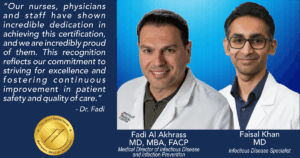
PMC Earns National Recognition for Sepsis Care During Awareness Month
September is nationally recognized as Sepsis Awareness Month, shining a light on one of the most common and deadliest infections. Sepsis can develop from bacteria,

